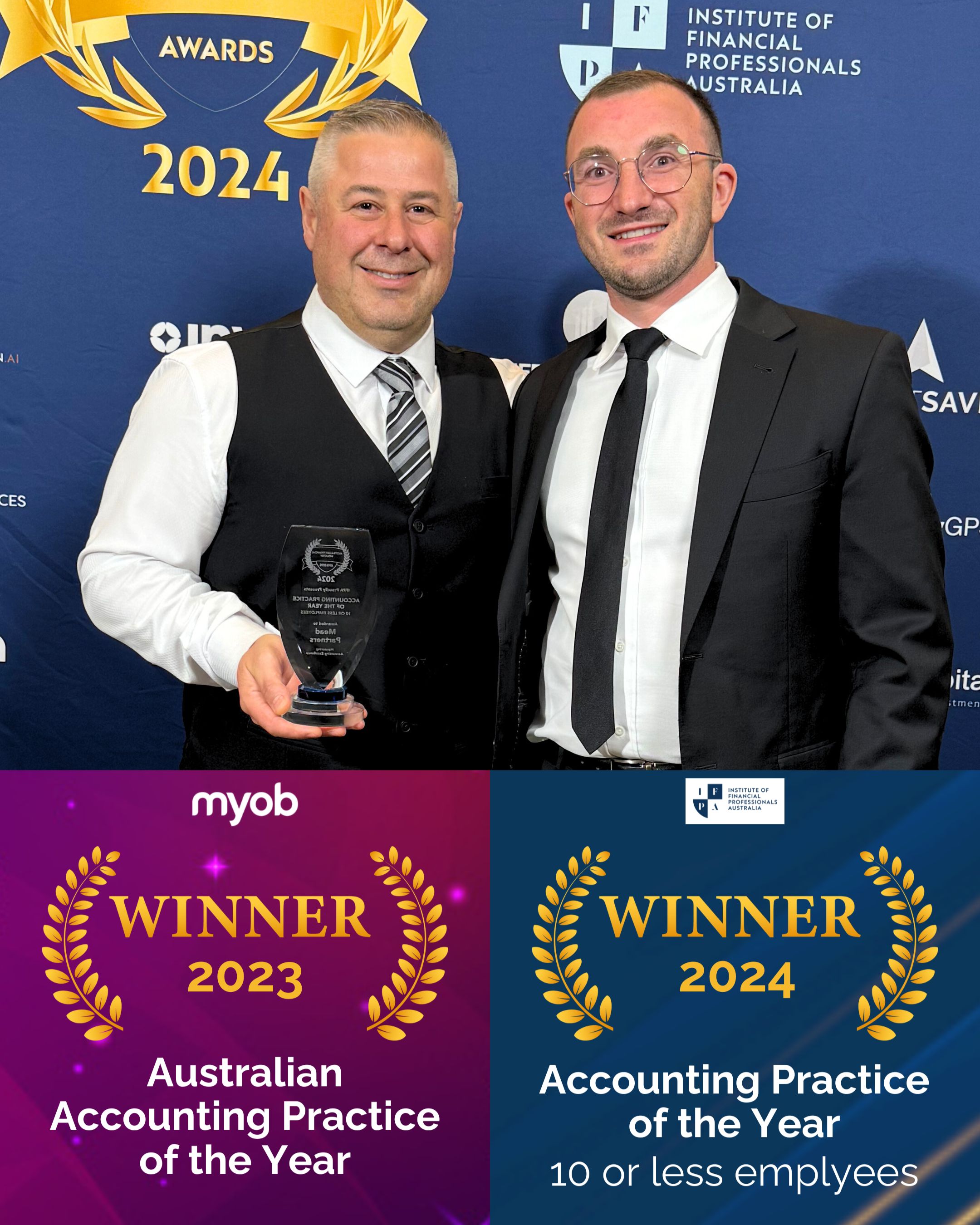
Book a Free Consultation!
✅Builders CFO Program
✅Business Improvement Program
✅Taxation Advice

Tax planning tips to maximise your tax benefits and get your business ready for tax time
Tax time can be a daunting experience, especially for small business owners. However, if you know where to look there are a lot of tax opportunities available to minimise your tax liability and increase your financial benefits.
To support your tax planning, here are some tips from our business advisory team and tax accountants to put your business in a better position come tax time.
Tax planning tips
Tip 1: Take advantage of small business tax concessions
Tax concessions can offer a range of tax breaks and deductions for your small business, such as lower tax rates, income tax offsets, and simplified depreciation rules.
Instant asset write-off for example (also known as simplified depreciation rules) allows businesses to immediately deduct the cost of new or second-hand assets. Of course, there are some rules around this, such as:
- Your company needs an aggregated turnover of less than $500 million
- The asset needs to be used and installed (ready for use) before 30 June 2023
- The asset must be below the current threshold for your aggregated turnover+
As thresholds and concessions change year to year, we recommend booking a tax planning session with a business advisor or accountant to check the applicable concession details.
Small business income tax offset could also reduce the amount of tax you pay up to $1,000 each year*. By taking advantage of these tax concessions, you can reduce your tax liability and improve your cash flow.
Tip 2: Make additional super contributions
Another way to reduce your tax liability is by making additional super contributions.
Small business owners can make tax-deductible super contributions up to the concessional contributions cap. By doing so, you can reduce your taxable income and potentially save on your tax bill. This is because super contributions are taxed at a lower tax rate of 15% in comparison to the small business company tax rate of 25%^. If you’re considering this as part of tax planning, it’s important to understand any applicable contribution caps to ensure you don’t exceed them.
Any contributions made on behalf of your employees can also be claimed as a tax deduction. Contributions must also hit their account before 30 June to apply for this financial year.
Not sure of contribution caps and what can be claimed? Talk to your tax accountant or business advisor to better understand deduction rules and relevant caps.
Tip 3: Utilise new electric vehicle exemptions
If you’re thinking of purchasing a new business vehicle, it might be worth looking into electric vehicle options.
In an effort to encourage the adoption of electric vehicles, the Australian government has introduced a range of tax exemptions and incentives for businesses that purchase electric or low-emission vehicles. These include:
- Luxury car tax: Electric vehicles are exempt from the luxury car tax up to a certain threshold.+
- Instant asset write-off: For businesses with a $5 billion aggregated turnover or less, this extended write-off scheme applies to electric vehicles as a business asset within the asset threshold.+
- FBT exemptions: Businesses that provide electric vehicles for their employees’ personal use may be eligible for fringe benefits tax (FBT) exemptions.
To make sure your vehicle meets eligibility criteria, it’s best to always chat with your business advisor or tax accountant before you make your purchase. This is especially important for scheme thresholds, which may change from year to year.
Tip 4: Pay staff bonuses
You can also reduce your business tax liability by paying staff bonuses before the end of the financial year. Bonuses paid to employees are tax-deductible, which can reduce your taxable income and potentially save you money on your tax bill.
It’s important to note that bonuses must be paid before the end of the financial year to be tax-deductible. If you are considering paying staff bonuses, it’s important to plan ahead and ensure that you have the necessary cash flow to make the payments.
Tip 5: Claim R&D benefits
If your small business is involved in research and development (R&D), you may be eligible for tax incentives and benefits through the R&D Tax Incentive program. The program offers a tax offset to eligible businesses that undertake eligible R&D activities, helping to reduce the cost of R&D and support innovation.
To be eligible for the R&D Tax Incentive, your business must be an Australian-based company with an annual turnover of less than $20 million.
With the program’s specific eligibility requirements and application deadlines, we recommend chatting with one of our tax accountants or business advisors so you can make an informed decision.
Tip 6: Leverage deductions for technology and staff investment
To help bring skill gap issues here in Australia, the Government announced small businesses would be able to claim a 20% deduction on digital technology investments up to $100,000 per year. Eligible solutions include cloud solutions, cyber security and portable payment terminals. A similar reduction is also available for external training courses for staff.
While the boost is still subject to law, the proposed deductions would allow businesses with an aggregated annual turnover of less than $50 million to receive a $120 tax deduction for every $100 spent.
It is hoped the boost will be announced as law in the upcoming May 2023 budget. For an update on this proposed investment boost, chat with our friendly accountants or business advisors.
Is tax planning just about reducing tax payments?
Tax planning ensures your business has time to put strategies in place to minimise your tax and maximise eligible deductions. By understanding your current tax situation, you can also make more informed decisions about future investments and get great insights into business growth opportunities.
To get the most from tax planning, it’s best to work with your business advisor or accountant long before your tax is due. Not only will this give you a better view of your tax obligations, but allow time for tax strategies to have an impact. It also helps you avoid tax traps, such as capital gains tax applicable to property investments.

Send To Someone